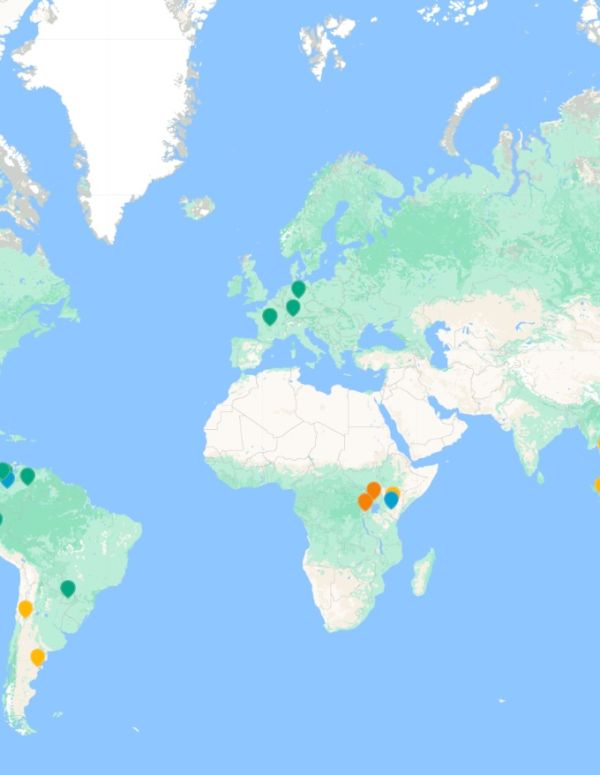Melden Sie sich
- Über uns
- Unsere Lösungen
- Unser Impact
- Events und News
- Karriere
- Verwalten Sie jetzt Ihre Emissionen (auf Englisch)
Über uns
Alle ansehen


- Über uns Über South Pole
- Unsere Mission
- Unser Führungsteam
- Unsere Standorte
- Unser Bekenntnis zu Integrität

Unser Bekenntnis zu Integrität
Starten Sie jetzt Ihre Climate Journey
Weiterlesen
- Über uns Unsere Lösungen
- Klimaberatung
- Umweltzertifikate
- Dekarbonisierung im großen Maßstab finanzieren

Unser Bekenntnis zu Integrität
Starten Sie jetzt Ihre Climate Journey
Weiterlesen
- Über uns Unser Impact
- Kunden
- Entdecken Sie unsere Projekte

Unser Bekenntnis zu Integrität
Starten Sie jetzt Ihre Climate Journey
Weiterlesen

Unser Bekenntnis zu Integrität
Starten Sie jetzt Ihre Climate Journey
Weiterlesen
Unsere Lösungen
Alle ansehen


- Unsere Lösungen Klimaberatung
- Umweltauflagen meistern, Klimaauswirkungen messen
- Wissenschaftlich fundierte Ziele setzen & Net Zero Resilience aufbauen
- Act on value chain engage stakeholders

Klimaschutz finanzieren und CO2-Zertifikate kaufen
Net Zero - Jetzt zukunftsorientiert handeln
Mehr erfahren
- Unsere Lösungen Umweltzertifikate
- Verstehen Sie die sich schnell verändernden Märkte und planen Sie ein zukunftsfähiges Portfolio.
- Wählen Sie kaufbereite Emissionszertifikate und Umweltzertifikate
- Sichern Sie sich einen langfristigen Strom von Kohlenstoff-Gutschriften

Klimaschutz finanzieren und CO2-Zertifikate kaufen
Net Zero - Jetzt zukunftsorientiert handeln
Mehr erfahren
- Unsere Lösungen Dekarbonisierung im großen Maßstab finanzieren
- Finance decarbonisation at scale
- Entdecken Sie unsere Projekte

Klimaschutz finanzieren und CO2-Zertifikate kaufen
Net Zero - Jetzt zukunftsorientiert handeln
Mehr erfahren

Klimaschutz finanzieren und CO2-Zertifikate kaufen
Net Zero - Jetzt zukunftsorientiert handeln
Mehr erfahren
Unser Impact
Alle ansehen


- Unser Impact Kunden
- Alles sehen

Nestlé
Starten Sie jetzt Ihre Climate Journey.
Weiterlesen
- Unser Impact Sektoren
- Finanzsektor & Kapitalmärkte
- Öffentlicher Sektor
- Alles sehen

Nestlé
Starten Sie jetzt Ihre Climate Journey.
Weiterlesen
- Unser Impact Entdecken Sie unsere Projekte
- Nature Based Solutions
- Community and Clean Water
- Renewable Energy
- Waste to Energy
- Plastic Solutions
- Alles sehen

Nestlé
Starten Sie jetzt Ihre Climate Journey.
Weiterlesen

Nestlé
Starten Sie jetzt Ihre Climate Journey.
Weiterlesen
Events und News
Alle ansehen



- Events und News Nachrichten
- Nachrichten
- Pressemitteilung

South Poles 2024 Net Zero Report

Catching up with Climate
Starten Sie jetzt Ihre Climate Journey.
Weiterlesen
- Events und News Events
- Zukünftige Events
- Vergangene Events

South Poles 2024 Net Zero Report

Catching up with Climate
Starten Sie jetzt Ihre Climate Journey.
Weiterlesen
- Events und News South Pole Blog
- Was ist CORSIA und wie wirkt es sich auf Ihre Fluggesellschaft aus?
- Eine neue Generation von Labels für eine zuverlässige Klimakommunikation
- Vorbereitung für CSRD
- The evolving definition of integrity in the carbon market
- Alles sehen

South Poles 2024 Net Zero Report

Catching up with Climate
Starten Sie jetzt Ihre Climate Journey.
Weiterlesen
- Events und News Publikationen
- Alle Downloads
- Alles sehen

South Poles 2024 Net Zero Report

Catching up with Climate
Starten Sie jetzt Ihre Climate Journey.
Weiterlesen

South Poles 2024 Net Zero Report

Catching up with Climate
Starten Sie jetzt Ihre Climate Journey.
Weiterlesen
Über uns
Unsere Lösungen
Unser Impact
Events und News

Unser Bekenntnis zu Integrität

Klimaschutz finanzieren und CO2-Zertifikate kaufen

Nestlé

South Poles 2024 Net Zero Report

Catching up with Climate






